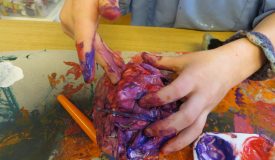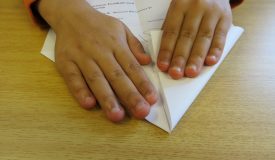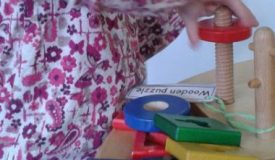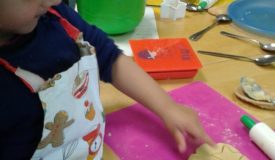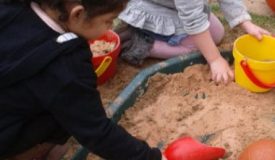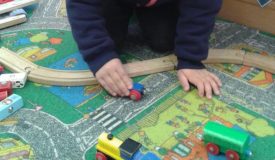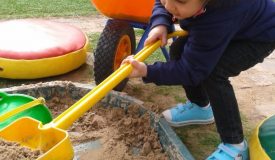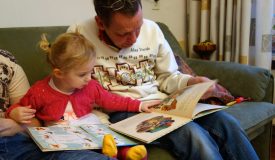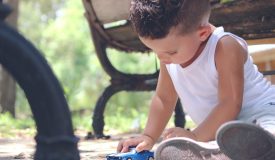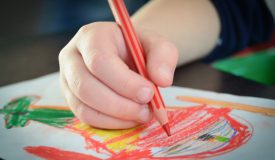Children grow through a phenomenal rate of growth and change from the time they are born.
Click on the items below to find out more about their developments at each age and stage.
Learning to Balance
Balance is essential to our physical abilities and well-being. If we are able to balance on our feet, we are able to walk and run safely. We are less likely…
The Importance of Parental Involvement
If you work with children under the age of 5 and are interested in giving them the best start in life, research shows that it is important to work collaboratively…
Developing Creativity
Developing Creativity Children are naturally creative. They have rich imaginations and can turn a cardboard box into a spaceship, pretend to be a superhero, make up songs, make up words,…
Cognitive Development (over 3 years old)
Cognitive Development (over 3 years old) Cognitive development is the development of perception, thought, memory, understanding and co-ordination. By the age of two, toddlers have the ability to learn very…
Social Development (Under 3 years old)
Social skills are important as they enable children to interact with others and form positive relationships and friendships. Social skills do not only mean being able to make friends and…
Language Development (under 3 years old)
Language comes in two parts: Expressive (using) and Receptive (understanding) In the early days babies’ language is very limited; comprising of a series of different cries gestures, facial expressions, eye-contact…
Sight Development
Babies’ eyes like their other senses allow them to take in large amounts of information for their brains to process. Their eyesight also helps to develop their hand-eye co-ordination and…
Sensory Development
Developing your Child’s Sense – Sensory Processing Developing your child’s senses is very important as it is the simplest way to develop their brain, especially in the early days as…
Infant’s Hearing Development
Most babies are able to hear clearly from birth and acquire large amounts of information from listening to sounds all around them. Although babies’ ears are well-developed at birth, it…
Developing Mathematical Thinking
Maths is all around us, therefore children’s mathematical thinking can be developed easily through every day activities. As baby grows, talk about numbers, count their toys, count their fingers and…
Language Development (over 3 years old)
Over the age of two, toddlers are able to express themselves using a few words quite clearly, to express their wants and needs and to interact with others. They need…
Developing Literacy – Reading & Writing
Literacy is the ability to read and write and use written information. In order to write it helps understand reading and know words and pictures represent things in life. For…
Social Skills Development
Although affectionate and loving, toddlers are also unrealistic and become easily frustrated, resulting in tantrums. They cannot empathise yet with others, as they cannot put themselves in someone else’s shoes….
Knowledge Development
In order to develop knowledge children have to see things that catch their interest. This will make them question and think about what they see and with support develop their…
About Physical Development
Physical Development Physical development comes in two parts: Gross Motor and Fine Motor Development Gross motor skills are whole body movements, such as moving arms, legs, neck, back, head, hands…
Understanding Child Development
All children go through changes as they grow from birth to adolescence, becoming more independent and less dependent as they grow. These changes are influenced by genetic factors as well…
Why Young Children Need Pictures when Learning to Read
“A picture says a thousand words,” this is not only a popular quote, but is also a fact when it comes to teaching young children how to read. When we…
Cognitive Development and the Young Child’s Mind
It has been known for decades that an infant’s capacity to learn is fundamentally different to an adult’s. To understand this more fully, we only need to look at how…
Why holding a pencil correctly when learning to write is crucial
It is tempting to ignore how a child holds their pencil assuming that they will simply grow out of it as they grow older. Not so. Many hand and finger…
Why Nursery Rhymes Are Important
Nursery rhymes or rhymes learnt by nursery aged children are a great way of teaching children language, reading, rhythm, phonics and rhyming skills. Research has shown that children who are…



